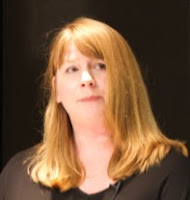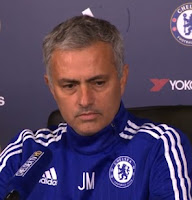Trinity Mirror chief executive Simon Fox, after the company took control of Local World to become the UK's biggest regional newspaper publisher: “This is a good day for local media. Local World is a business we know and respect and by combining it with Trinity Mirror we will create an organisation of scale, with the talent and financial capacity to invest and adapt to the rapidly changing media landscape. It is a vote of confidence in local press and its future.”
Michelle Stanistreet, NUJ general secretary, on Trinity Mirror and Local World: "This deal is a further blow to media plurality. Already there is little choice on offer in our cities and major towns when it comes to buying a local newspaper. Trinity Mirror's domination will vastly reduce the little choice there is. The never-ending consolidation of the local media market is a consequence of the difficulties in increasing advertising revenue on digital products, but what is needed is a long-term vision and not short-term speculation.”
Mike Lowe on HoldTheFrontPage commenting on the Trinity Mirror and Local World deal: "As a Northcliffe veteran who owes his career to the old group, this is a very sad day."
Chris Grayling, leader of the House of Commons, on the Freedom of Information Act, as reported by the Guardian: “It is, on occasion, misused by those who use it as, effectively, a research tool to generate stories for the media, and that is not acceptable."
Campaign for Freedom of Information director Maurice Frankel: “The FOI Act exists to help hold government to account, improve the public’s understanding of what it does does, to show whether policies are working and identify where public services need to be improved. Journalists are key users of the Act for those purposes and no-one should be surprised if that involves producing ‘stories’. That’s how the public learns what is going on."
Peter Preston in the Observer on Seumas Milne, Labour's new media chief: "Milne came to the Guardian long ago, highly recommended by Andrew Knight at the Economist. He is extremely clever in a Winchester and Oxbridge way. He edited some good – and not notably slanted – comment pages. He is quiet, often charming, a seeming-shy activist. Of course there are difficulties. Columns down the decades can be dredged for unexploded torpedoes. The “on leave” tag appears to make Seumas a once and continuing Guardian man, which won’t help relations with journalists from elsewhere and could hogtie former colleagues who aren’t on leave if they want to criticise Labour’s communications policies. Ethical quagmires ahead."
Lord Mandelson on The Week in Westminster on BBC Radio 4 on Seumas Milne: "He’s completely unsuited to such a job. He has little connection with mainstream politics or mainstream media in the country and yet he’s in charge of communications for the Labour party. That doesn’t sound very professional to me.”
Northern Echo editor Peter Barron: "It is time to go public with the position taken by Northern Powerhouse minister James Wharton, the Conservative MP for Stockton South, who refuses point blank to have anything to do with The Northern Echo. He refuses to take our calls or provide us with answers to our questions and has told me to inform my reporters not to call him."
James Wharton MP on Facebook: "Now this long lasting disagreement has been brought to the fore I would again ask that any constituent with a concern about anything they read in the Echo please feel free to contact me directly. Or even better, don’t read it. There are other ways to get more balanced local news."
Chris Morley, NUJ Northern and Midlands organiser on Newsquest plans to cut 10 editorial jobs at the Bolton News: "This horrendous news comes just over a week after it was revealed Newsquest directors had awarded themselves a 26 per cent rise in 'performance-related payments' to a third of a million pounds. If this is performance and success I really don't want to see the failures. Newsquest continue to astound with a 'ground zero' approach to producing news with the fewest professional journalists anyone could imagine."
Sun editor Tony Gallagher in the Guardian on his time working in the restaurant Moro after he left the Telegraph: "When the story of my time at Moro reached the papers, I was annoyed by the patronising tone of some of the coverage, as if this were a job beneath journalists. In fact, a large proportion of the staff have degrees of one kind or another and are far more rounded than many of the graduates emerging straight from university to seek work on national newspapers."
Chelsea manager José Mourinho, as quoted by the Guardian, at his weekly press conference: “You don’t get from me good and funny headlines. I’m going to treat your bosses the same way they treat me. No respect, no respect. And I’m not speaking about football. Football I’m ready to accept any kind of criticism, even the stupid ones. Private life and stupid things that you bring to light, I don’t like it. So we go to a different level of professional relationship.”
Manchester United manager Louis van Gaal to reporters. as quoted by the Manchester Evening News: "I don’t give any more answers about Wayne Rooney. I am sick of them”























































